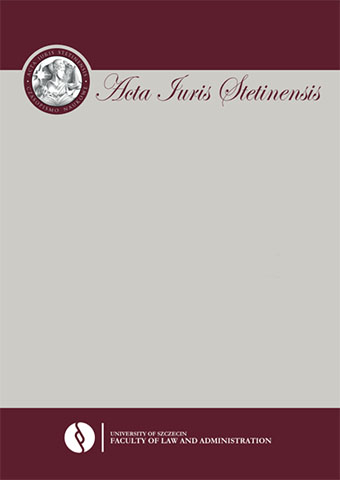| 1. | Haft F., Der doppelte Irrtum im Strafrecht, „Juristische Schulung” 1980. |
| 2. | Jescheck H.-H., Aufbau und Stellung des bedingten Vorsatzes im Verbrechensbegriff, |
| 3. | w: Existenz und Ordnung. Festschrift für Erik Wolf zum 60. Geburtstag, Frankfurt |
| 4. | am Main 1962. |
| 5. | Jescheck H.-H, Rozwój i obecny stan nauki o winie nieumyślnej w Republice Federalnej |
| 6. | Niemiec i w Polsce, „Palestra” 1979, nr 11–12. |
| 7. | Jescheck H.-H., Weigend Th., Lehrbuch des Strafrecht. Allgemeiner Teil, Berlin 1996. |
| 8. | Jędrzejewski Z., Bezprawność jako element przestępności czynu. Studium na temat struktury przestępstwa, Warszawa 2009. |
| 9. | Jędrzejewski Z., Usytuowanie zamiaru ewentualnego w strukturze przestępstwa, w: Węzłowe problemy prawa karnego, kryminologii i polityki kryminalnej. Księga pamiątkowa ofiarowana Profesorowi Andrzejowi Markowi, red. V. Konarska-Wrzosek, J. Lachowski, J. Wójcikiewicz, Warszawa 2010. |
| 10. | Jędrzejewski Z., Artykuł 28§1 KK po nowelizacji z dnia 20 lutego 2015 r. Uwagi na temat konieczności oddzielania strony podmiotowej czynu zabronionego od winy, „Studia Iuridica” 2016, t. 65. |
| 11. | Jędrzejewski Z., Strona podmiotowa i wina, przedmiot oceny i ocena a tzw. ścisła teoria winy, w: Prawo wobec problemów społecznych. Księga Jubileuszowa Profesor Eleonory Zielińskiej, red. B. Namysłowska-Gabrysiak, K. Syroka-Marczewska, A. Walczak-Żochowska, Warszawa 2016. |
| 12. | Jędrzejewski Z., Okoliczności wyłączające bezprawność. Zagadnienia ogólne, w: System Prawa Karnego, t. 4 Nauka o przestępstwie. Wyłączenie i ograniczenie odpowiedzialności karnej, wyd. II, red. L. Paprzycki, Warszawa 2016. |
| 13. | Jędrzejewski Z., Struktura przestępstwa. §5 Bezprawność, w: System Prawa Karnego, t. 3, Nauka o przestępstwie. Zasady odpowiedzialności, wyd. II, red. R. Dębski, Warszawa 2017. |
| 14. | Kardas P., Problem usprawiedliwienia błędu a podstawy wyłączenia winy, w: Okoliczności wyłączające winę. Materiały VI Bielańskiego Kolokwium Karnistycznego, red. J. Majewski, Toruń 2010. |
| 15. | Kunert K.H., Die normativen Merkmale der strafrechtlichen Tatbestände, Berlin 1958. |
| 16. | Majewski J., Nieumyślność a brak umyślności, w: Nieumyślność. Pokłosie VIII Bielańskiego Kolokwium Karnistycznego, red. J. Majewski, Toruń 2012. |
| 17. | Roxin C., Offene Tatbestände und Rechtspflichtmerkmale, Hamburg 1959. |
| 18. | Roxin C., Zur Kritik der finalen Handlungslehre, „Zeitschrift für die gesamte Strafrechtswissenschaft” 1962, Bd. 74. |
| 19. | Schaffstein F., Soziale Adäquanz und Tatbestandslehre, „Zeitschrift für die gesamte Strafrechtswissenschaft” 1960, Bd.72. |
| 20. | Welzel H., Studien zum System des Strafrechts, „Zeitschrift für die gesamte Strafrechtswissenschaft” 1938, Bd. 58. |
| 21. | Welzel H., Aktuelle Strafrechtsprobleme im Rahmen der finalen Handlunglehre, Karlsruhe 1953. |
| 22. | Welzel H., Das Deutsche Strafrecht. Eine systematische Darstellung, 11 Aufl. Berlin 1969. |
| 23. | Wróbel W., Wina i zawinienie a strona podmiotowa czynu zabronionego, czyli o potrzebie posługiwania się w prawie karnym pojęciem winy umyślnej i winy nieumyślnej, w: Przestępstwo – kara – polityka kryminalna. Problemy tworzenia i funkcjonowania prawa. Księga jubileuszowa z okazji 70. rocznicy urodzin Profesora Tomasza Kaczmarka, red. J. Giezek, Kraków 2006. |
| 24. | Zoll A., Okoliczności wyłączające bezprawność czynu, Warszawa 1982. |
| 25. | Zoll A., Ogólne zasady odpowiedzialności karnej, „Państwo i Prawo” 1990, nr 10. |






